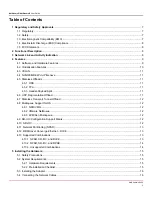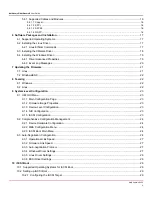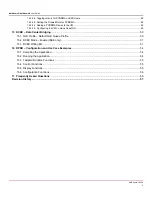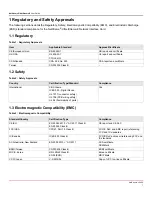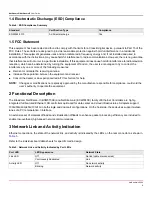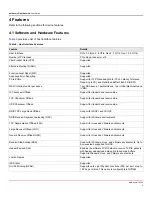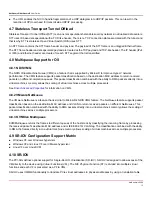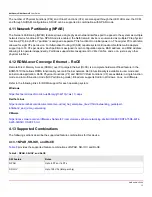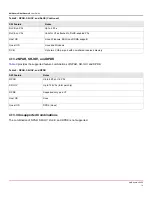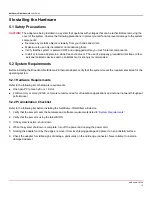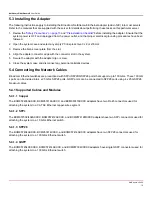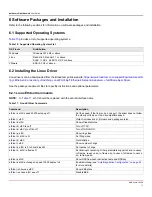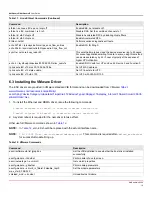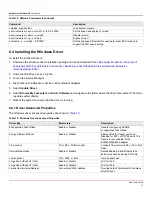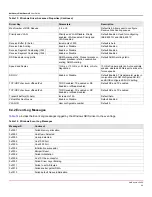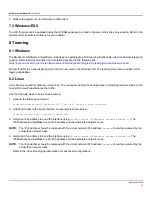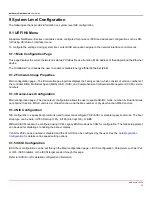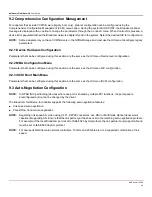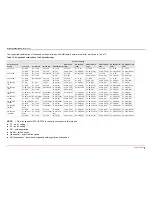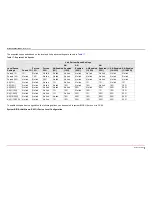
NetXtreme-UG100
11
NetXtreme-C/NetXtreme-E
User Guide
4.3 VXLAN
A Virtual eXtensible Local Area Network (VXLAN), defined in IETF RFC 7348, is used to address the need for overlay
networks within virtualized data centers accommodating multiple tenants. VXLAN is a Layer 2 overlay or tunneling scheme
over a Layer 3 network. Only VMs within the same VXLAN segment can communicate with each other.
4.4 NVGRE/GRE/IP-in-IP/Geneve
Network Virtualization using GRE (NVGRE), defined in IETF RFC 7637, is similar to a VXLAN.
4.5 Stateless Offloads
4.5.1 RSS
Receive Side Scaling (RSS) uses a Toeplitz algorithm which uses 4 tuple match on the received frames and forwards it to
a deterministic CPU for frame processing. This allows streamlined frame processing and balances CPU utilization. An
indirection table is used to map the stream to a CPU.
Symmetric RSS allows the mapping of packets of a given TCP or UDP flow to the same receive queue.
4.5.2 TPA
Transparent Packet Aggregation (TPA) is a technique where received frames of the same 4 tuple matched frames are
aggregated together and then indicated to the network stack. Each entry in the TPA context is identified by the 4 tuple:
Source IP, destination IP, source TCP port, and destination TCP port. TPA improves system performance by reducing
interrupts for network traffic and lessening CPU overhead.
4.5.3 Header-Payload Split
Header-payload split is a feature that enables the software TCP/IP stack to receive TCP/IP packets with header and payload
data split into separate buffers. The support for this feature is available in both Windows and Linux environments. The
following are potential benefits of header-payload split:
The header-payload split enables compact and efficient caching of packet headers into host CPU caches. This can
result in a receive side TCP/IP performance improvement.
Header-payload splitting enables page flipping and zero copy operations by the host TCP/IP stack. This can further
improve the performance of the receive path.
4.6 UDP Fragmentation Offload
UDP Fragmentation Offload (UFO) is a feature that enables the software stack to offload fragmentation of UDP/IP datagrams
into UDP/IP packets. The support for this feature is only available in the Linux environment. The following is a potential
benefit of UFO:
MSI-X vector port
74 per port default value (two port configuration). 16 per VF and is
configurable in HII and CCM.
Table 7: Virtualization Features (Continued)
Feature
Details



